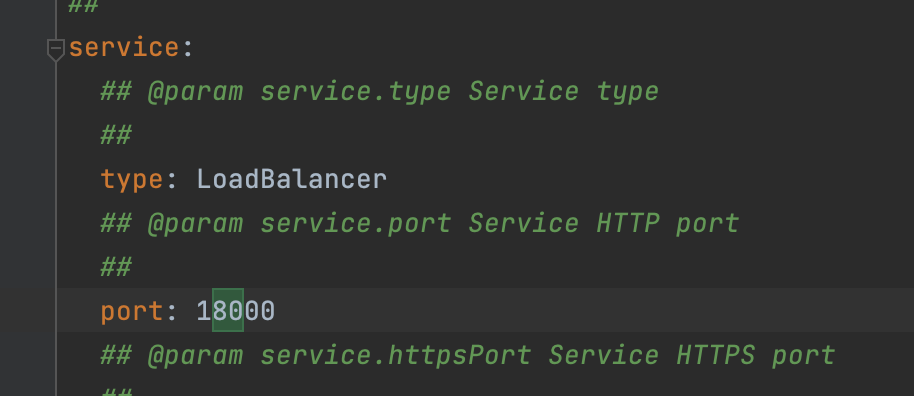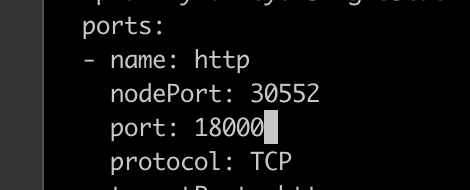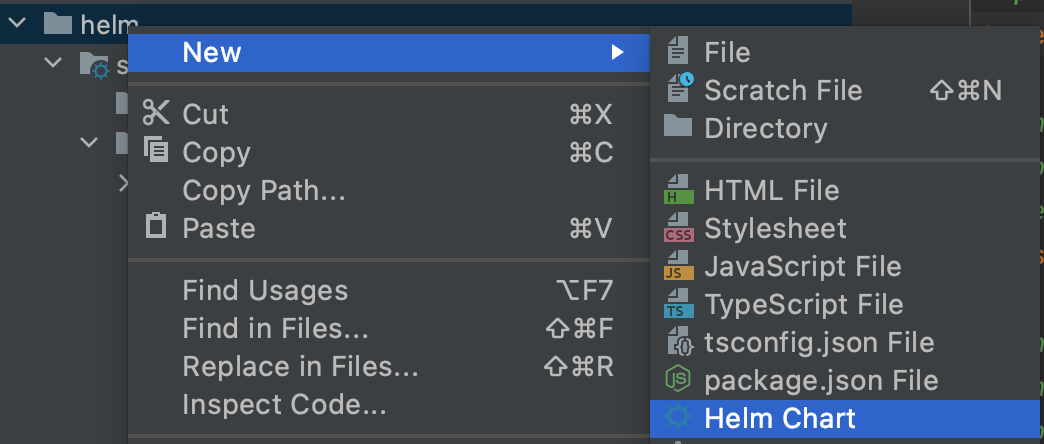Helm基本操作
Helm是k8s的包管理工具,使用helm可以简化k8s应用部署
而使用了helm之后,helm会提供一个模板,将这些yaml文件作为一个整体进行管理,高效复用,同时方便版本管理
1.安装Helm和配置仓库
https://helm.sh/zh/docs/intro/install/
mac安装helm
brew install helm
ubuntu安装helm
curl https://baltocdn.com/helm/signing.asc | sudo apt-key add - sudo apt-get install apt-transport-https --yes echo "deb https://baltocdn.com/helm/stable/debian/ all main" | sudo tee /etc/apt/sources.list.d/helm-stable-debian.list sudo apt-get update sudo apt-get install helm
添加helm bitnami源
helm repo add bitnami https://charts.bitnami.com/bitnami helm repo update
添加helm阿里云源
helm repo remove stable helm repo add stable https://kubernetes.oss-cn-hangzhou.aliyuncs.com/charts helm repo update
删除helm源
helm repo remove stable
2.查找chart
helm search repo nginx NAME CHART VERSION APP VERSION DESCRIPTION bitnami/nginx 9.8.0 1.21.6 NGINX Open Source is a web server that can be a... bitnami/nginx-ingress-controller 9.1.7 1.1.1 NGINX Ingress Controller is an Ingress controll... bitnami/nginx-intel 0.1.4 0.4.7 NGINX Open Source for Intel is a lightweight se... stable/nginx-ingress 0.9.5 0.10.2 An nginx Ingress controller that uses ConfigMap... stable/nginx-lego 0.3.1 Chart for nginx-ingress-controller and kube-lego bitnami/kong 5.0.2 2.7.0 Kong is a scalable, open source API layer (aka ... stable/gcloud-endpoints 0.1.0 Develop, deploy, protect and monitor your APIs ... helm search repo kubernetes-dashboard NAME CHART VERSION APP VERSION DESCRIPTION stable/kubernetes-dashboard 0.6.0 1.8.3 General-purpose web UI for Kubernetes clusters
3.部署release
其中mynginx是部署后的release名称,bitnami/nginx是chart的名称
helm install mynginx bitnami/nginx
NAME: mynginx
LAST DEPLOYED: Wed Jun 1 17:29:42 2022
NAMESPACE: default
STATUS: deployed
REVISION: 1
TEST SUITE: None
NOTES:
CHART NAME: nginx
CHART VERSION: 9.8.0
APP VERSION: 1.21.6
** Please be patient while the chart is being deployed **
NGINX can be accessed through the following DNS name from within your cluster:
mynginx.default.svc.cluster.local (port 80)
To access NGINX from outside the cluster, follow the steps below:
1. Get the NGINX URL by running these commands:
NOTE: It may take a few minutes for the LoadBalancer IP to be available.
Watch the status with: 'kubectl get svc --namespace default -w mynginx'
export SERVICE_PORT=$(kubectl get --namespace default -o jsonpath="{.spec.ports[0].port}" services mynginx)
export SERVICE_IP=$(kubectl get svc --namespace default mynginx -o jsonpath='{.status.loadBalancer.ingress[0].ip}')
echo "http://${SERVICE_IP}:${SERVICE_PORT}"
如果想卸载release
helm uninstall mynginx -n default release "mynginx" uninstalled
4.查看部署的release
helm list NAME NAMESPACE REVISION UPDATED STATUS CHART APP VERSION mynginx default 1 2022-06-01 17:29:42.587416 +0800 CST deployed nginx-9.8.0 1.21.6
或者
helm ls -A NAME NAMESPACE REVISION UPDATED STATUS CHART APP VERSION kubernetes-dashboard kube-system 1 2022-03-01 20:31:13.287929871 +0800 CST deployed kubernetes-dashboard-0.6.0 1.8.3
查看部署release的状态
helm status mynginx
NAME: mynginx
LAST DEPLOYED: Wed Jun 1 23:28:47 2022
NAMESPACE: default
STATUS: deployed
REVISION: 1
TEST SUITE: None
NOTES:
CHART NAME: nginx
CHART VERSION: 9.8.0
APP VERSION: 1.21.6
** Please be patient while the chart is being deployed **
NGINX can be accessed through the following DNS name from within your cluster:
mynginx.default.svc.cluster.local (port 80)
To access NGINX from outside the cluster, follow the steps below:
1. Get the NGINX URL by running these commands:
NOTE: It may take a few minutes for the LoadBalancer IP to be available.
Watch the status with: 'kubectl get svc --namespace default -w mynginx'
export SERVICE_PORT=$(kubectl get --namespace default -o jsonpath="{.spec.ports[0].port}" services mynginx)
export SERVICE_IP=$(kubectl get svc --namespace default mynginx -o jsonpath='{.status.loadBalancer.ingress[0].ip}')
echo "http://${SERVICE_IP}:${SERVICE_PORT}"
可以看到pod已经启动
kubectl get pod -A NAMESPACE NAME READY STATUS RESTARTS AGE default mynginx-5998cdd48b-x59wz 1/1 Running 0 3m29s
查看service
kubectl get svc --namespace default mynginx NAME TYPE CLUSTER-IP EXTERNAL-IP PORT(S) AGE mynginx LoadBalancer 10.99.159.33 localhost 80:31833/TCP 3m57s
可以通过访问localhost:80访问nginx的页面

5.更新values.yaml
首先下载chart并解压
helm fetch bitnami/nginx tar -zxvf nginx-9.8.0.tgz
编辑values.yaml,修改nginx HTTP port 80成18000

如果修改了values文件,可以这样更新
helm upgrade mynginx -f ./values.yaml . --namespace default
可以看到service端口已经被更新到18000
kubectl get svc -A NAMESPACE NAME TYPE CLUSTER-IP EXTERNAL-IP PORT(S) AGE default kubernetes ClusterIP 10.96.0.1 <none> 443/TCP 17d default mynginx LoadBalancer 10.111.232.86 localhost 18000:32395/TCP 3m58s
或者也可以直接编辑service来修改端口
kubectl edit svc mynginx

6.如何创建chart
创建chart模板
helm create mychart
或者

创建deployment.yaml
kubectl create deployment mynginx --image=nginx --dry-run=client -o yaml > deployment.yaml ➜ /Users/lintong/coding/helm/mychart/templates $ ls deployment.yaml
创建pod
kubectl create deployment mynginx --image=nginx deployment.apps/mynginx created kubectl get pods -A NAMESPACE NAME READY STATUS RESTARTS AGE default mynginx-654f8684f8-74dlg 1/1 Running 0 26s
创建service.yaml
kubectl expose deployment mynginx --port=18000 --target-port=80 --type=NodePort --dry-run=client -o yaml > service.yaml ➜ /Users/lintong/coding/helm/mychart/templates $ ls deployment.yaml service.yaml
之后就可以安装了mychart了
➜ /Users/lintong/coding/helm $ helm install mynginx mychart/
可以在values.yaml文件中定义变量,然后供deployment.yaml和service.yaml使用,比如
replicas: 1 image: nginx tag: 1.16 label: nginx port: 18000
然后修改deployment,service和ingress的模板,以 .Values.变量名称 的方式来使用values.yaml中的变量
deployment.yaml
apiVersion: apps/v1
kind: Deployment
metadata:
creationTimestamp: null
labels:
app: {{ .Values.label }}
name: {{ .Release.Name }}-deploy
spec:
replicas: 1
selector:
matchLabels:
app: {{ .Values.label }}
strategy: {}
template:
metadata:
creationTimestamp: null
labels:
app: {{ .Values.label }}
spec:
containers:
- image: {{ .Values.image }}
name: {{ .Values.label }}
resources: {}
status: {}
service.yaml
apiVersion: v1
kind: Service
metadata:
creationTimestamp: null
labels:
app: {{ .Values.label }}
name: {{ .Release.Name }}-svc
spec:
ports:
- port: {{ .Values.port }}
protocol: TCP
targetPort: 80
selector:
app: {{ .Values.label }}
type: NodePort
status:
loadBalancer: {}
ingress.yaml
apiVersion: networking.k8s.io/v1
kind: Ingress
metadata:
name: {{ .Release.Name }}-ingress
annotations:
kubernetes.io/ingress.class: nginx-internal
labels:
app: {{ .Values.label }}
spec:
rules:
- host: {{ .Values.label }}.k8s.xxx.com
http:
paths:
- backend:
service:
name: {{ .Release.Name }}-svc
port:
number: {{ .Values.port }}
path: /
pathType: ImplementationSpecific
验证模板
helm install myweb mychart/ --dry-run
NAME: myweb
LAST DEPLOYED: Thu Jun 2 17:02:29 2022
NAMESPACE: default
STATUS: pending-install
REVISION: 1
TEST SUITE: None
HOOKS:
MANIFEST:
---
# Source: mychart/templates/service.yaml
apiVersion: v1
kind: Service
metadata:
creationTimestamp: null
labels:
app: nginx
name: myweb-svc
spec:
ports:
- port: 18000
protocol: TCP
targetPort: 80
selector:
app: nginx
type: NodePort
status:
loadBalancer: {}
---
# Source: mychart/templates/deployment.yaml
apiVersion: apps/v1
kind: Deployment
metadata:
creationTimestamp: null
labels:
app: nginx
name: myweb-deploy
spec:
replicas: 1
selector:
matchLabels:
app: nginx
strategy: {}
template:
metadata:
creationTimestamp: null
labels:
app: nginx
spec:
containers:
- image: nginx
name: nginx
resources: {}
status: {}
install release
helm install myweb mychart/
接下来就可以使用下面命令查看域名,来访问服务
kubectl get ingress -n default
如果想要卸载release的话
helm install myweb -n default
其他helm变量用法可以参考:Helm教程
本文只发表于博客园和tonglin0325的博客,作者:tonglin0325,转载请注明原文链接:https://www.cnblogs.com/tonglin0325/p/5285420.html



